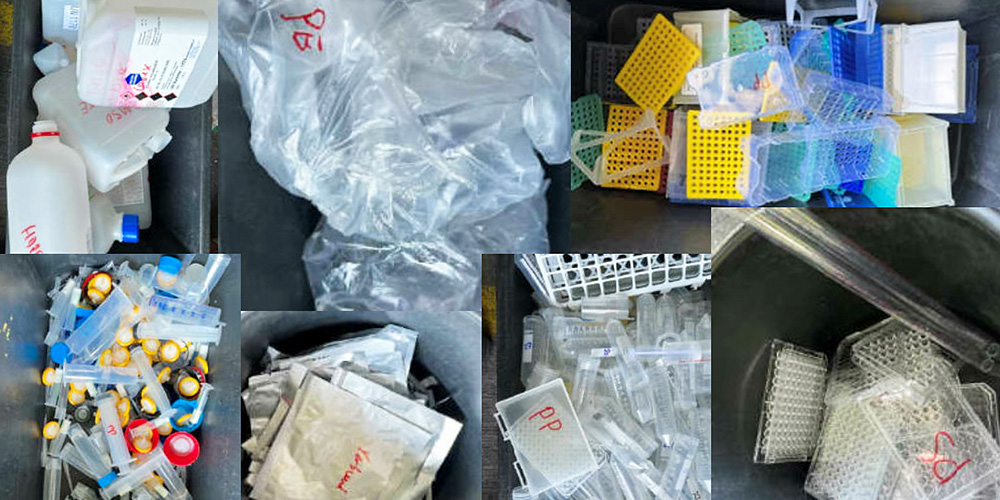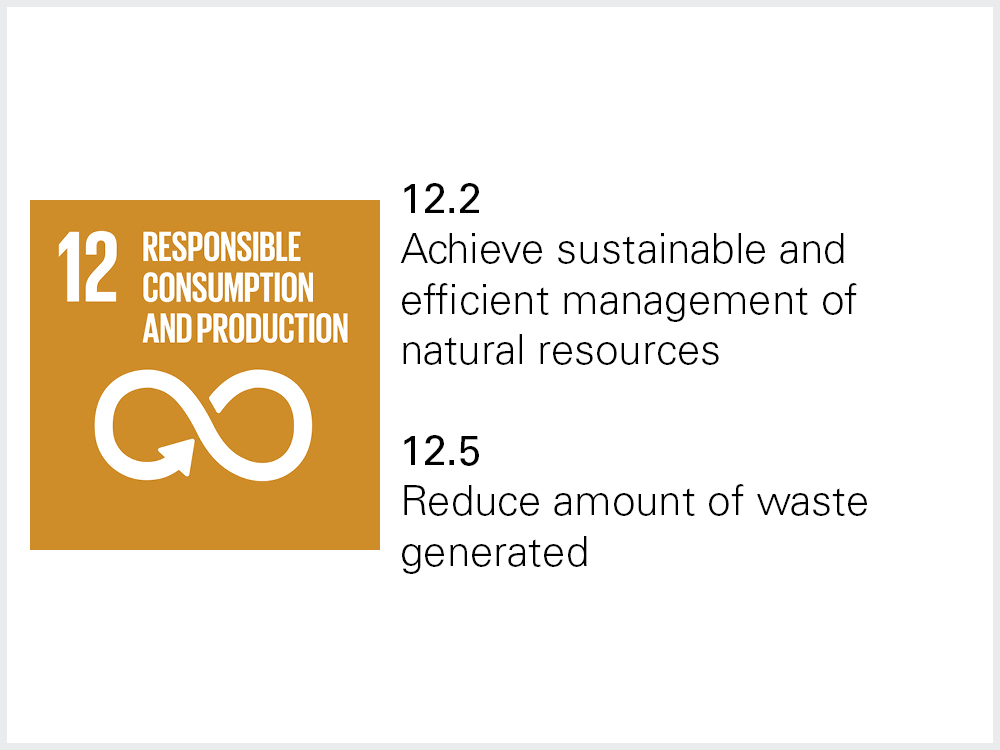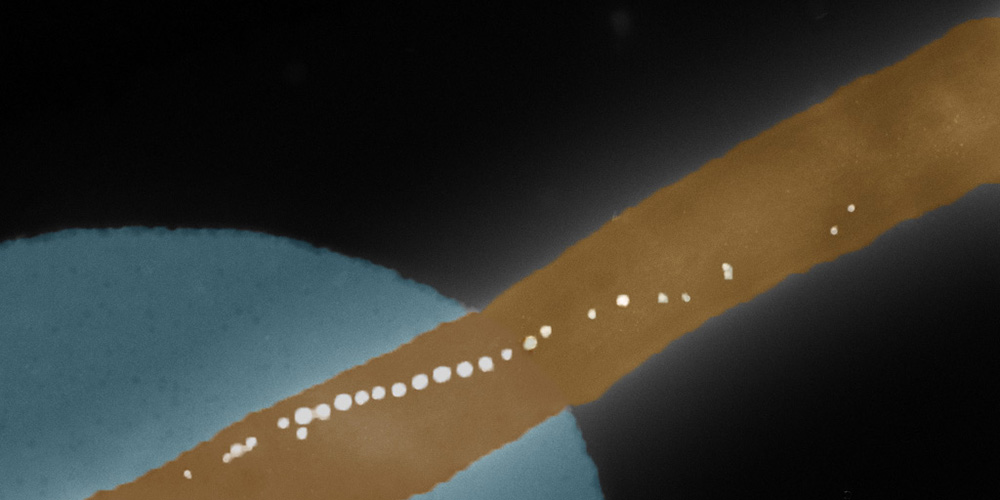Procurement and Recyclables

Over the past two years, a number of initiatives have been launched to make the areas of procurement and materials management more circular: These include pilot projects to extend useful life, the sale of decommissioned IT equipment and furniture, increased digitisation at the University Library to reduce paper-based media and test runs on plastic recycling in research laboratories. In addition, the revised public procurement law, which came into force in Basel-Stadt in February 2024, emphasised the importance of sustainability criteria in submission procedures.
Development of waste quantities
The quantity of waste1 on the university campus between 2023 and 2024 remained stable at 535 and 543 tonnes, respectively. There was a decrease in hazardous waste and an increase in recyclable materials in 2024. The waste includes rubbish, which is primarily disposed of thermally in the Basel incineration plant to generate energy, as well as recyclable materials such as glass, paper, metal, PET and electronic waste. Additionally, research and teaching activities generate unavoidable hazardous waste (mostly contaminated), which is handed over to certified companies for professional disposal. In 2023, 59 tonnes of hazardous waste were generated, falling to 49 tonnes in 2024. This includes solvents and waste from chemical and biological research. SInce 2022, thanks to changes to some disposal processes at the Biozentrum, all biological liquid waste can be autoclaved2 on site. This lead to an overall reduction in the disposal of biologically contaminated hazardous waste by external specialist companies.
Extension of the utilisation period
Extending the utilisation period is often the most effective way for reducing the ecological footprint of a device or object throughout its life cycle. Over the past two years, various analyses and pilot projects have therefore been carried out to enable the continued use of devices and materials beyond the university setting. For instance, Campus Services prepared the sale of decommissioned furniture that no longer has a use on campus. The first sale is scheduled for 2025. In 2023, decommissioned laptops were handed over to an organisation supporting refugees from Ukraine. Since 2024, IT Services has been testing various options for the reselling of used IT equipment in a pilot project. This will also be introduced in 2025. Any IT equipment that cannot be sold to employees will be offered on the second-hand market in Switzerland. The proceeds will be used for to purchase new equipment or tu fund PC training rooms at the university.
Procurement
The revised public procurement law, which came into force in Basel-Stadt in February 2024, places greater importance on sustainability criteria in public procurement. These criteria have already been explicitly included in several calls for submissions in recent years, including those for university catering services.To adapt to the new framework conditions, suitable sustainability criteria for various goods and service categories were evaluated in internal workshops with the relevant departments. Work has begun on recording and quantifying the indirect greenhouse gas emissions caused by the purchased goods and services, with the aim of including the procurement area in the university's carbon footprint in the medium term.
Further measures and projects in the Procurement & Recyclables area are presented in the following picture gallery:
[1]The data on paper and cardboard waste for the Petersplatz campus was determined on the basis of extrapolations. Construction waste is not included.
[2] Autoclaving is a form of steam sterilization and is considered one of the most reliable sterilization processes.


